Related Research Articles
The Methodist Episcopal Church, South was the American Methodist denomination resulting from the 19th-century split over the issue of slavery in the Methodist Episcopal Church (MEC). Disagreement on this issue had been increasing in strength for decades between churches of the Northern and Southern United States; in 1845 it resulted in a schism at the General Conference of the MEC held in Louisville, Kentucky.
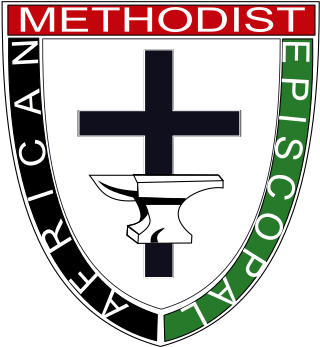
The African Methodist Episcopal Church, usually called the AME Church or AME, is a Methodist Black church. It adheres to Wesleyan-Arminian theology and has a connexional polity. The African Methodist Episcopal Church is the first independent Protestant denomination to be founded by black people; though it welcomes and has members of all ethnicities.

Theodore Sedgwick Wright (1797–1847), sometimes Theodore Sedgewick Wright, was an African-American abolitionist and minister who was active in New York City, where he led the First Colored Presbyterian Church as its second pastor. He was the first African American to attend Princeton Theological Seminary, from which he graduated in 1828 or 1829. In 1833 he became a founding member of the American Anti-Slavery Society, an interracial group that included Samuel Cornish, a Black Presbyterian, and many Congregationalists, and served on its executive committee until 1840.

Union Presbyterian Seminary is a Presbyterian seminary in Richmond, Virginia and Charlotte, North Carolina, offering graduate theological education in multiple modalities: in-person, hybrid, and online.

The African Methodist Episcopal Zion Church, or the AME Zion Church (AMEZ) is a historically African-American Christian denomination based in the United States. It was officially formed in 1821 in New York City, but operated for a number of years before then. The African Methodist Episcopal Zion Church adheres to Wesleyan-Arminian theology.
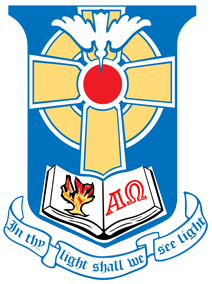
The Associate Reformed Presbyterian Church (ARPC), as it exists today, is the historical descendant of the Synod of the South, a Synod of the Associate Reformed Church. The original Associate Reformed Church resulted from a merger of the Associate Presbytery and most of the Reformed Presbytery in Philadelphia in 1782. The northern Synods eventually merged with the forebears of the Presbyterian Church (USA). Because of its 1782 date of origin, it is one of the oldest of the United States' theologically and socially conservative denominations.

Princeton Theological Seminary (PTSem), officially The Theological Seminary of the Presbyterian Church, is a private school of theology in Princeton, New Jersey. Founded in 1812 under the auspices of Archibald Alexander, the General Assembly of the Presbyterian Church (USA), and the College of New Jersey, it is the second-oldest seminary in the United States. It is also the largest of ten seminaries associated with the Presbyterian Church.

Columbia Theological Seminary is a Presbyterian seminary in Decatur, Georgia. It is one of ten theological institutions affiliated with the Presbyterian Church (USA).

Robert Finley was an American Presbyterian clergyman and educator who is known as one of the founders of the American Colonization Society, which established the colony of Liberia in West Africa as a place for free African Americans.
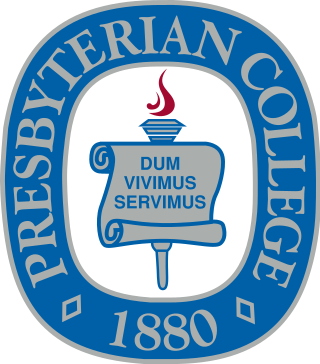
Presbyterian College (PC) is a private Presbyterian liberal arts college in Clinton, South Carolina.

Thomas Cooper was an Anglo-American economist, college president and political philosopher. Cooper was described by Thomas Jefferson as "one of the ablest men in America" and by John Adams as "a learned ingenious scientific and talented madcap." Dumas Malone stated that "modern scientific progress would have been impossible without the freedom of the mind which he championed throughout life." His ideas were taken very seriously in his own time: there were substantial reviews of his writings, and some late eighteenth-century critics of materialism directed their arguments against Cooper, rather than against the better-known Joseph Priestley.

James Petigru Boyce was an American pastor, theologian, professor and chaplain who was one of the founders of the Southern Baptist Theological Seminary.

James Henley Thornwell was an American Presbyterian preacher, slaveowner, and religious writer from the U.S. state of South Carolina during the 19th century. During the American Civil War, Thornwell supported the Confederacy and preached a doctrine that claimed slavery to be morally right and justified by the tenets of Christianity. But contrary to many proponents of slavery, he preached that the African American population were people created in the image of God just like whites and that they should call slaves their brothers. He became prominent in the Old School Presbyterian denomination in the south, preaching and writing on theological and social issues. He taught at South Carolina College, eventually served as its president, and went on to teach at Columbia Theological Seminary. He was a contemporary of Charles Hodge and represented the southern branch of the Presbyterian church in debates on ecclesiology with Hodge.
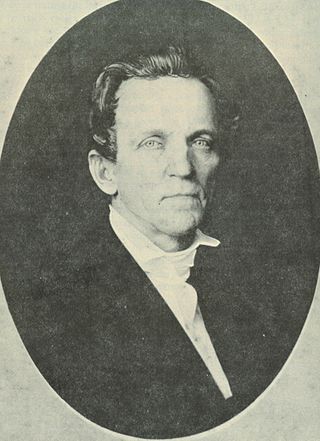
Charles Colcock Jones Sr. was an American Presbyterian clergyman, educator, and planter of Liberty County, Georgia. He was both a slave owner and a fervent missionary to slaves.

The Old School–New School controversy was a schism of the Presbyterian Church in the United States of America which took place in 1837 and lasted for over 20 years. The Old School, led by Charles Hodge of Princeton Theological Seminary, was more conservative theologically and did not support the revival movement. It called for traditional Calvinist orthodoxy as outlined in the Westminster standards.

Joseph Ruggles Wilson Sr. was a prominent Presbyterian theologian and father of President Woodrow Wilson, Nashville Banner editor Joseph Ruggles Wilson Jr., and Anne E. Wilson Howe. In 1861, as pastor of First Presbyterian Church in Augusta, Georgia, he organized the General Assembly of the newly formed Presbyterian Church in the United States, known as the Southern Presbyterian Church, and served as its clerk for thirty-seven years.
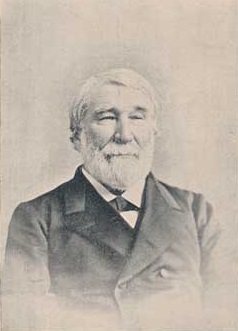
John Leighton Wilson, an alumnus of Columbia Theological Seminary, and his wife Jane Bayard Wilson were the first missionaries to West Africa by the American Board of Commissioners for Foreign Missions.
John Bailey Adger was an American Missionary from Charleston, South Carolina. His father, James Adger, was very wealthy and influential in the city, and his nephew, James Adger Smyth, would later be mayor of Charleston. John went to New York for college, he graduated in 1828 from Union College before attending Princeton Theological Seminary. Graduating in 1833, the next year he was ordained by the Presbytery of Charleston Union and was sent to evangelize Armenians in modern-day Turkey. While there he translated the bible and religious texts into local languages and managed a printing press. After 12 years his eyesight began to fade, causing him to resign and return to the United States. On his journey back home, he would meet with family in London, and gain exposure to the slavery debate and gain an appreciation for the abolitionist position.

Thomas Smyth was an American Presbyterian minister. He served as minister of Second Presbyterian Church in Charleston, South Carolina for more than 40 years, from 1832 until his death.
References
- ↑ "Clarke, T. Erskine".
- ↑ Columbia.edu
- ↑ "Erskine Clarke". Georgia Center for the Book. Retrieved October 31, 2013.
- ↑ Anne Blue Wills (2005). "Dwelling Place: A Plantation Epic (book review)". The Journal of Southern Religion. Vol.11. Retrieved October 31, 2013.
- ↑ Bertram Wyatt-Brown (Fall 2006). "Dwelling Place (book review)". The Georgia Historical Quarterly . 90 (3): 453–457. JSTOR 40584938.
- ↑ Jeannine Marie DeLombard (March 2007). "Dwelling Place (book review)". The New England Quarterly . 80 (1): 147–150. JSTOR 20474517.
- ↑ Adam Rothman (2006). "Dwelling Place (book review)". The American Historical Review . 111 (4): 1173–1174. doi:10.1086/ahr.111.4.1173.
- ↑ Dale Walker (October 26, 2013). "Book review: 'By the Rivers of Water: A Nineteenth-Century Atlantic Odyssey,' by Erskine Clark". The Dallas Morning News . Retrieved October 31, 2013.
- ↑ "By The Rivers of Water". Kirkus Reviews . September 1, 2013. Retrieved October 31, 2013.